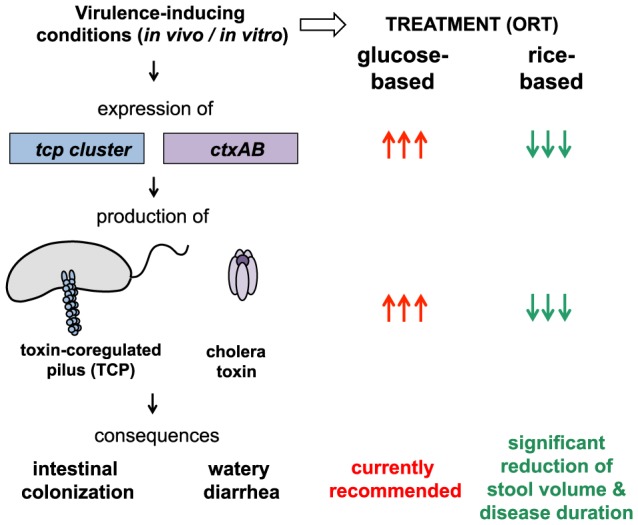Figure 1. Glucose-based oral rehydration therapy (ORT) might enhance the production of virulence determinates in V. cholerae thereby extending the duration of the disease and worsen the symptoms compared to rice-based ORT.

Upon virulence-inducing conditions (e.g., in the human intestine or by in vitro provision of bicarbonate as inducer [21], [29]) the human pathogen V. cholerae expresses amongst others the virulence genes of the tcp and ctx clusters, which ultimately leads to the synthesis and assembly of the toxin-coregulated pilus (TCP) and the production of cholera toxin, respectively. The TCP forms a type IV pilus structure on the bacterial surface, which is required for intestinal colonization. The cholera toxin indirectly leads to efflux of ions (concomitantly with water), which causes the dramatic watery diarrhea, the hallmark of cholera. In this study, we assessed the expression of the tcp and ctx genes and the production of cholera toxin under virulence-inducing conditions and in the presence of diverse carbon sources. Our data indicate that glucose strongly enhances the virulence potential of the pathogen (indicated by the arrows). Thus, based on the better performance of rice-based ORT as described in field studies and on our model-guided prediction of cholera transmission under epidemic settings we suggest that rice-based ORT should be reconsidered for the treatment of cholera.
